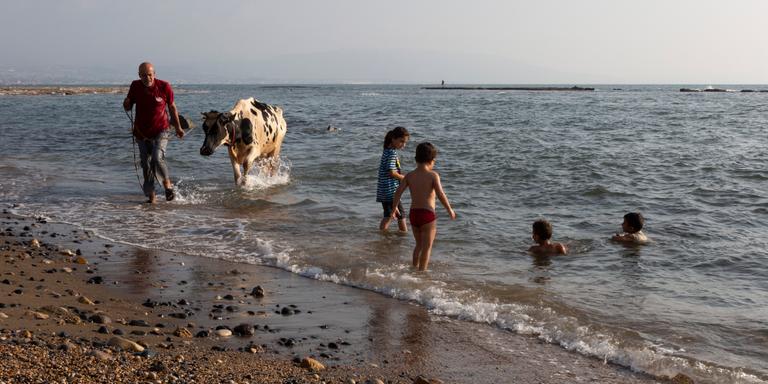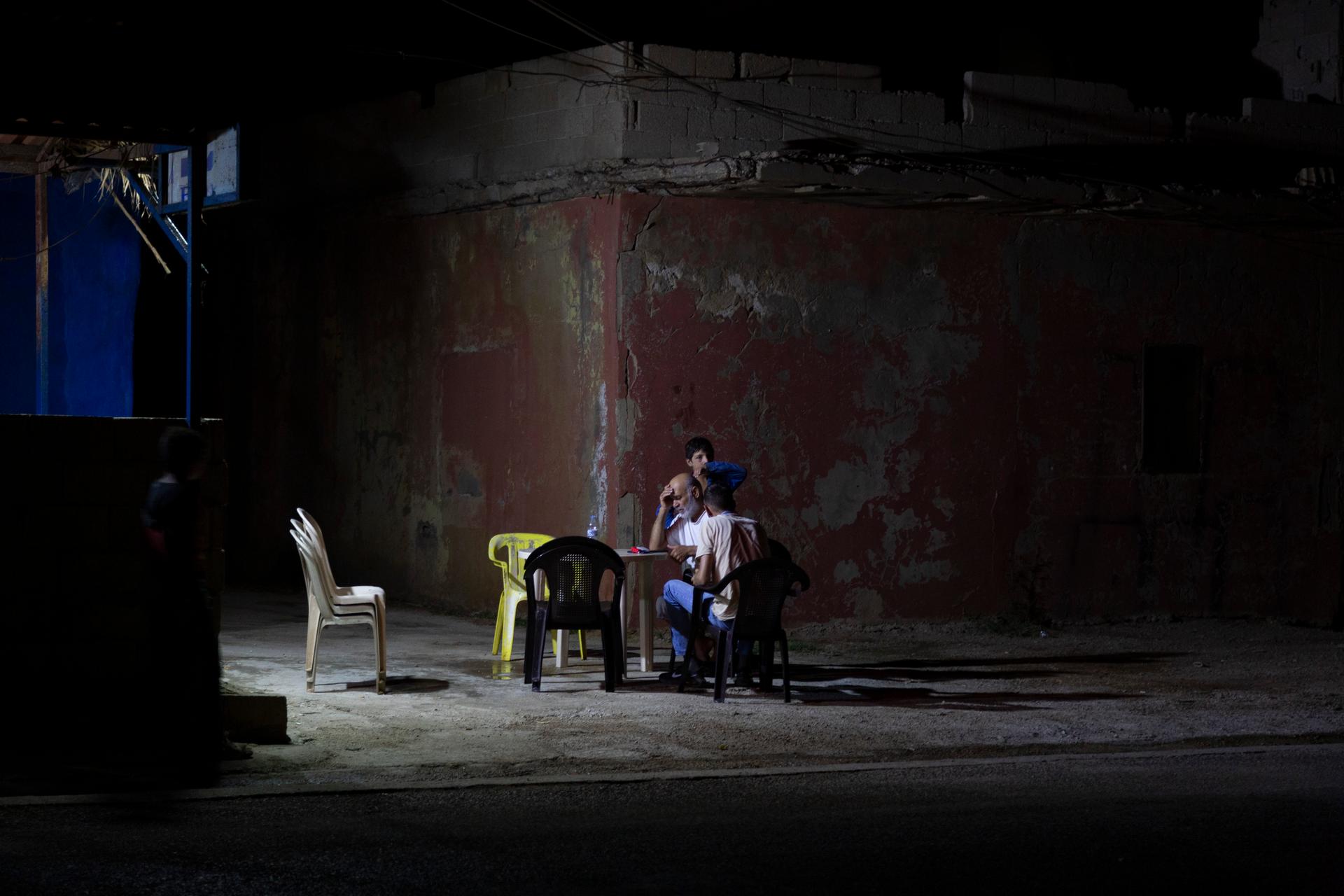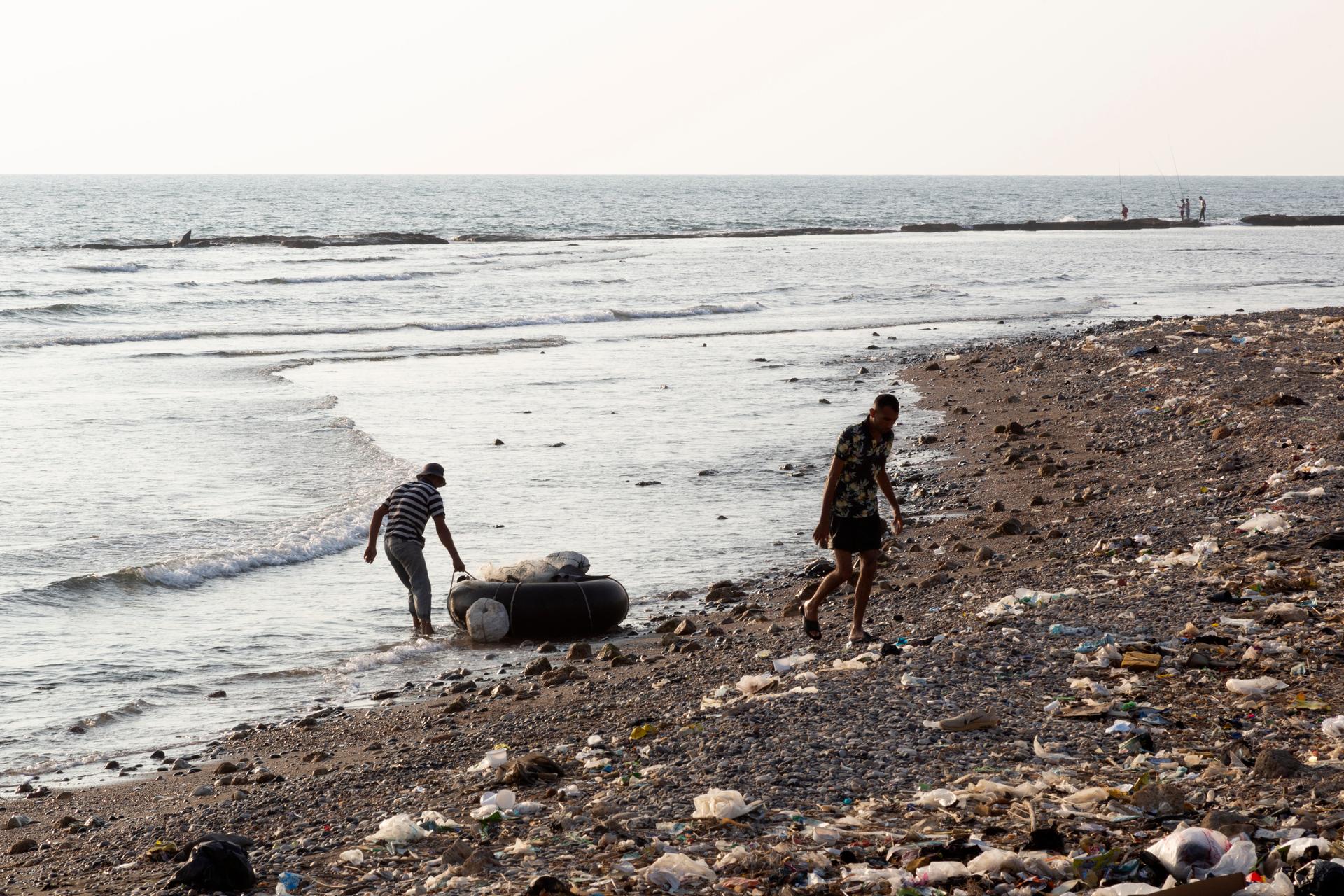


In Lebanon, the Akkar region witnesses the departure of would-be migrants: 'Chaos and poverty have made trafficking from the coasts very visible'
FeatureDeaths at sea and migrants' failed attempts to reach Europe have not discouraged others from departing from the northern coastal province. But those who are determined to try their luck, mainly Syrians, are now primarily heading for Cyprus.
In the evening twilight, Fouad was enjoying the fresh air with his visitors along the strip of land between the Akkar coastal road, which is void of street lights, and the Mediterranean shoreline, a few dozen meters ahead. The lights of fishing boats could be seen twinkling offshore. One of his sons has been in Europe since the summer of 2022 after having made the illegal journey to Italy from the Akkar coast in northern Lebanon. Fouad, a shopkeeper whose house faces the sea not far from Abdé, is careful "not to see more than the State sees" when it comes to the trafficking of migrants taking place in the region. "Mafias are at work," he added to justify his precautions. "Migrants are brought in at the last minute before boarding, in the middle of the night."

One of Fouad's nephews, Bachar, 27, who was seated at the makeshift table, had tried to get to Italy in 2022. But his boat was intercepted at sea, and he was sent back to Lebanon where he returned to work in agriculture. "Emigration is a thing of the past for me," he said. Akkar is full of young people who have returned from Europe riddled with debt after their dream of stability on the Old Continent had collapsed. Despite people's disillusionment, and despite the fact that in 2022 at least 174 people died in the eastern Mediterranean in boats heading for Greece or Italy, the departures continue.
But according to the Lebanon office of the International Organization for Migration (IOM), "the migratory route has changed": While Italy was the main destination in 2022, migrants – mainly Syrians (either directly from Syria or refugees in Lebanon) and Lebanese – are once again choosing to head toward Cyprus. Between February and July, the UN migration agency recorded at least 34 boats arriving on the island from Lebanon. Nicosia's authorities have reported additional arrivals in August coming from Akkar and the neighboring Syrian region of Tartus. Cyprus is returning these illegal immigrants to their place of departure, citing bilateral agreements with Lebanon, and rejecting requests to relocate any migrants who arrived on its soil after January 1 elsewhere in the European Union.

As a result of strict measures in Cyprus, the route to Italy has not been eliminated. An unprecedented incident recently served as a reminder of the dangers entailed in that journey: 110 passengers, including 40 children, who set out from the northern coast of Lebanon on August 11, were detained in Libya for a week. Seven days after their departure, the migrants' boat was boarded by Libyan militiamen who opened fire before kidnapping them. When we met with Mohamed Nabouche in Akkar, he and his family were worried sick: He had received no news of his brother, Khodr, a 38-year-old policeman. Most of the 110 migrants were released on Friday. "We received a voice message from Khodr. What a relief! He's in Benghazi," Mohamed reported, via a phone call on Sunday. "We don't know what he's going to do: stay and work in Libya? Continue on his way to Europe? Return to Lebanon?"
You have 42.62% of this article left to read. The rest is for subscribers only.
